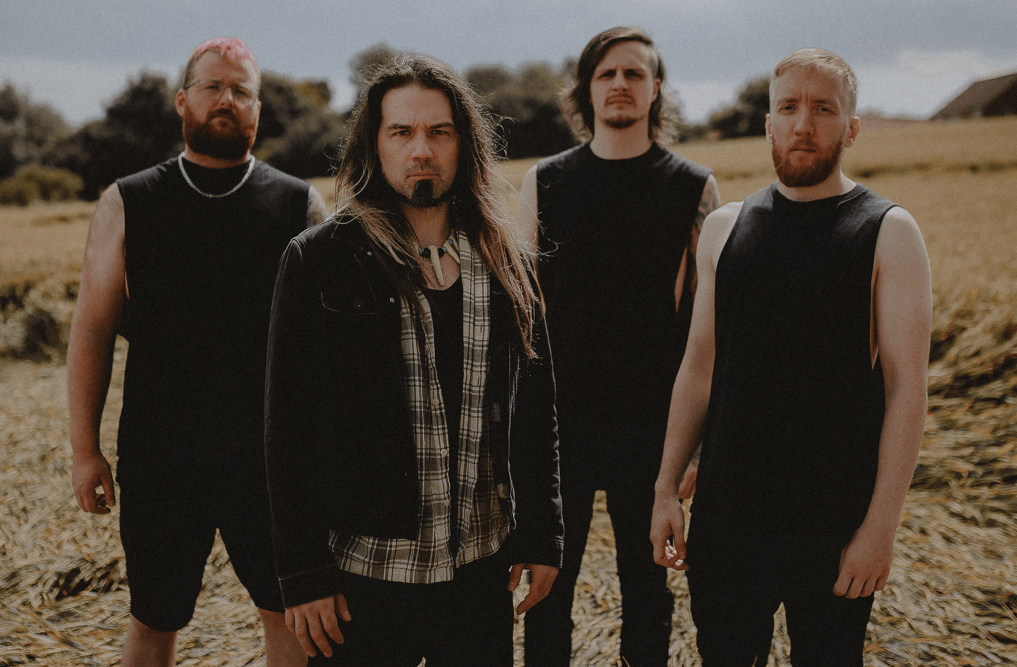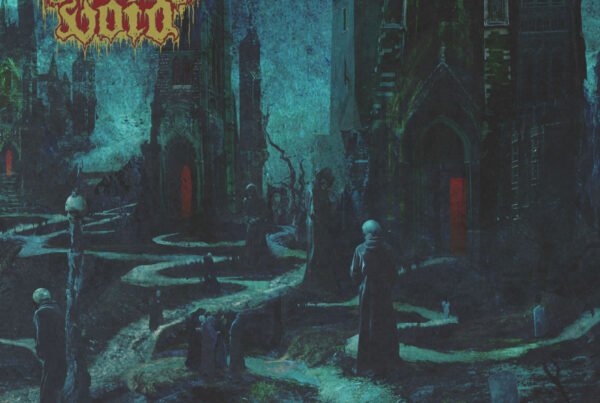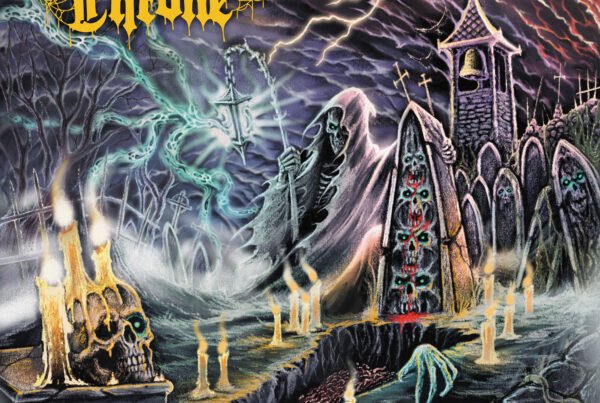Through a unique marriage of intricate death metal and brutal deathcore Osiah continue a streak of excellence with their latest album Kairos.
Release date: December 8, 2023 | Unique Leader Records | Facebook | Instagram | Twitter | Bandcamp
No introduction. No interludes. No 15-plus-minute songs about snow. No keyboard-laden, space laser sound effects. No frills or gimmicks, just an hour of straight-up deathcore served on a stone cold slab of technical death metal. Hailing from North East England, Osiah draws forth a raw aggression which resonates throughout the UK metal scene on their fourth album Kairos. With intensely screamed highs and bellowing, guttural lows, their impressive vocal range meets punishing breakdowns and hooking melodies to form their own blend of old-school, early ’00s deathcore with a modern technical infusion. Because there aren’t a bunch of unnecessary bells and whistles to distract, the album also sounds incredibly clean. Kairos is one of those albums that sounds like you’re right there in the room with the band.
Kairos is extremely consistent. All twelve tracks are right around four minutes, save for the closing song, “Hues Refract”, which takes its time acting as an outro to the album across its seven minutes. The greatest strength of the album, its consistency, could also be perceived as a minor weakness. For those looking for a lot of variety and experimentation, this might be a bone of contention, but everyone else will be too busy headbanging along to one smooth jam after another to notice. Kairos is nearly twice as long as many typical deathcore albums, but it doesn’t feel like it at all. This is where the band’s technical death metal influence sets them apart from their contemporaries, allowing the record to stretch out and grow on the listener without overstaying its welcome.
Kairos is almost a concept album, where the concept is madness or the individual’s struggle to cling to sanity while the world around them is increasingly unhinged. Song after song punches these themes home. “White Feather” is a reference to the practice in the UK during WW1 and WW2 of women handing white feathers to men not in uniform during wartime to shame them into enlisting. As a dual meaning, the song furthers the imagery of shameful compliance in battle by relating it to the personal struggle with mental health: ‘White feather for my sins/If the demons win/Thus I, I stand in defiance/Of my desire to leave this lonely battlefield’. On “The Inherited Sorrow”, Osiah tackles wealth inequality in a scathing indictment of late-stage capitalism: ‘This cull/With malicious intent/They’re taking this whole damn world away/Broken wings turn to rotten roots/This world is a tragedy for those who feel, but not to those who steal’.
Another major theme of the album is loss of humanity through an ever-increasing dependency on technology and its possible transcendency through A.I. The opening track “A Great Nothing” explores a possible solution to the Fermi Paradox, which poses the question, ‘If the universe is teeming with life, where is everybody?’ Perhaps instead of exploring outward physically across the universe, they’ve gone inward through simulation and use the power of stars themselves to fuel their virtual reality: ‘Consume/everything for replication/They are all unquenchable harvesters/Devoid of empathy/Their purpose, one of facility/Specifically the consumption of all energy’. Then there’s “Kardashev Denied”, which is a reference to the Kardashev Scale that measures a civilization’s technological advancement based upon energy consumption, which of course would be denied if, for example, silicone life was consuming stars to fuel digital realms. For a genre that is often just blood, guts, and breakdowns, Osiah is exploring some rather lofty, high-concept material throughout this sci-fi, cosmic horror space opera of an album. In this they overlap thematically, if not sonically, with Alkaloid, who also put out an excellent album last year in Numen. There’s just something about the desolate, cold vastness of space which lends itself quite nicely to death metal.
Osiah’s last album, Loss from 2021, was one of my favorites from that year so it’s rewarding to have them once again putting out one of the strongest releases of 2023. Enduring over time and through line up changes, the band has managed to maintain their output such that every album they put out is arguably their best yet, which is no easy feat. This is thanks largely to their no-nonsense, straightforward approach to deathcore. Osiah are 100% beats, no filler, all substance. The days grow shorter and the nights colder as another year ends. It’s a natural time for reflection. 2023 was an especially strong year for metal with many best-of lists rightly including stellar releases from bands such as Blackbraid, Tomb Mold, Frozen Soul, Horrendous, Xoth, Sanguisugabogg, and Body Void to name a few examples. So as we take stock of another trip around the sun, Osiah’s late entry merits worthy consideration amongst the year’s many standout contributions to the ongoing project that is metal.






